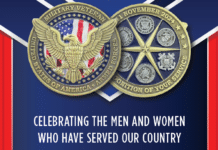
The Call of Duty Endowment and Zip Recruiter recently released a study that found “underemployment affects more veteran job seekers than non-veteran job seekers. Nearly one-third of veteran job seekers are underemployed — a rate 15.6 percent higher than non-veteran job seekers.”
Yet, when they polled employers, a majority of employers reported that veterans performed “better than” or “much better than” non-veterans. The study went on to reveal that employers are more likely to view veterans as a positive asset to their companies compared to their non-veteran peers. Fifty nine (59.1) percent of employers reported that veterans perform “better than” or “much better than” their non-veteran peers, with 37.5 percent saying they performed “about the same” as their non-veteran peers.
So, with America’s focus on honoring and welcoming Veterans into their communities and workplace, one would think underemployment would no longer be an issue for those transitioning from military service to the civilian sector.
I had the privilege of interviewing Dan Goldenberg, Executive Director of the Call of Duty Endowment, who not only served in the corporate sector before rolling into the Exec Director position but is also a Naval Academy and Harvard Business School graduate, help me unpack the issue on the latest issue of The Military Wire podcast.
There was a number of key points Dan made that were revealing and insightful. While Department of Labor VETS boasts a less than 4% unemployment rate for Veterans, according to Dan, it doesn’t represent nor tell an accurate story. What determines the U.S. unemployment rate is the answer to one question: last week were you paid for work?
If you answer that question, “YES,” you are counted as fully employed. Not a great measurement of employment, especially if you are working in a job that is part time or pays far less than a viable wage.
According to the study, veterans searching for jobs are more likely to be employed during their search than non-veterans – they are also more likely to leave a job in the first six months than a non-veteran. They tend to jump at the first job simply because they have a sense of responsibility and adding value – even if it’s not a good fit – and even if it means they have to work three jobs to make ends meet. But that can only last so long.
The good news is that over the course of a veteran’s entire career, veterans stay longer at their jobs – with 57 percent of veteran job seekers staying at their jobs longer than 2.5 years, compared to 42.5 percent of non-veterans.
The key is identifying “fit.” Companies hire to solve problems. Veterans are trained to solve problems – whether it be profit-problems, teamwork issues, operational processes, etc. But be sure it’s a good fit – because both of you will benefit when it is.
Dan said it best, “The leadership, initiative, and creative problem-solving veterans draw from their military service has the potential to transform organizations that hire them.”
So how does this add to improved morale and profits? Data from the study revealed Veterans are 4% more productive than their counterparts and 3% more likely to stay. When you increase productivity and longevity, you add to the bottom line. While some will argue longevity has nothing to do with morale, SHRM’s latest survey suggests that 88% employees reported overall satisfaction with their job.
Morale is at least satisfactory.
Bottom line: Call of Duty Endowment knows the process for hiring Veterans and whether it is personal or professional morale and finances you want to improve, you’ll gain ground when you start with clarity of purpose. Veterans have the skills, abilities and aptitude to transform organizations when they are aligned with the right “next mission.” Lastly, check out the key findings in CHALLENGES ON THE HOME FRONT: UNDEREMPLOYMENT HITS VETERANS HARD by Cathy Barrera and Phillip Carter, you’ll find many answers to employment, morale and improving profits in this study.

The Military Wire, hosted by Mike Schindler, interviews some of America’s most elite men and women who have served this country in hopes that you the listener will gain an “ah-ha” moment that will help you move your life forward.
Mike is a US Navy Veteran, an award-winning author, and has been featured on Yahoo Finance, the Boston Globe, NY Post, USA Today, Q13 Fox, and numerous other media outlets discussing why today’s Veterans are truly one of America’s Greatest Assets. Mike is the author of two highly endorsed books, “Operation Military Family: How Military Couples are Fighting to Preserve their Marriages,” and “U.S. Veterans in the Workforce: Why the 7% are America’s Greatest Asset.”
All content herein is owned by author exclusively. Expressed opinions are NOT necessarily the views of VNR, authors, affiliates, advertisers, sponsors, partners, technicians, or VT Network. Some content may be satirical in nature.
All images within are full responsibility of the author and NOT VNR.
Read Full Policy Notice - Comment Policy



























